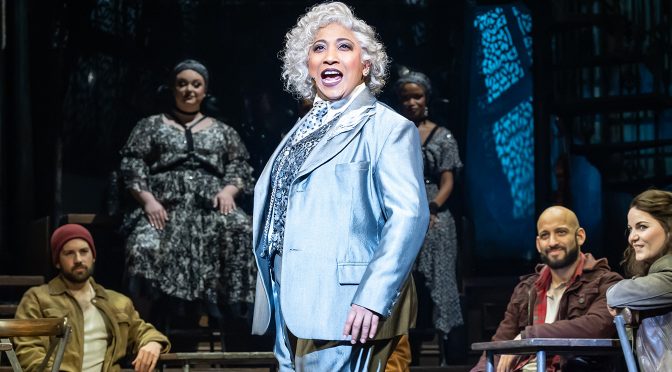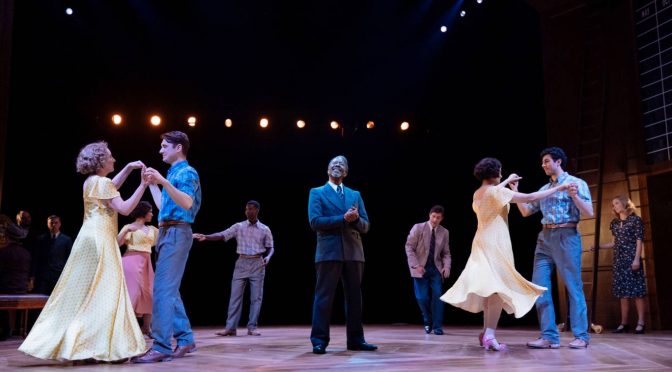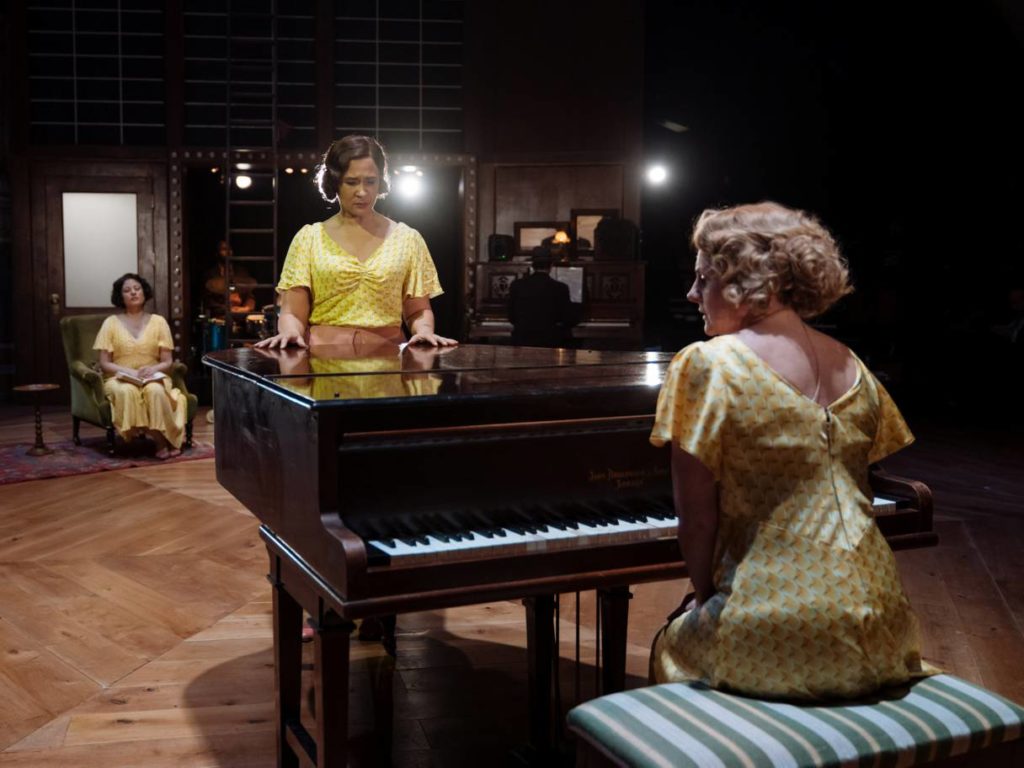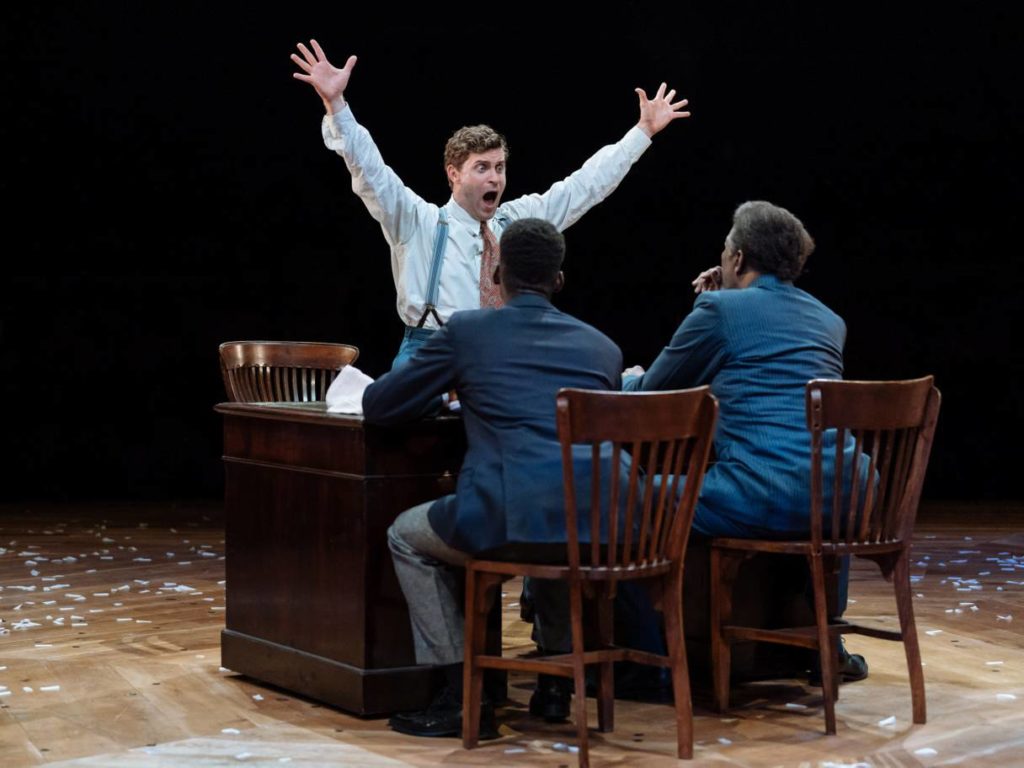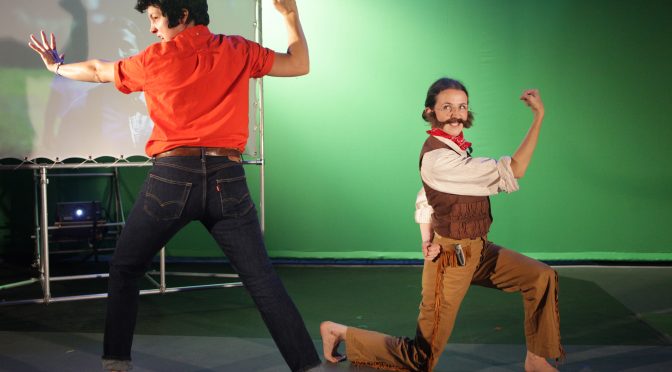One of the first big musicals of the year – there are plenty coming – this much anticipated show deserves great success. Anaïs Mitchell’s retelling of two Greek myths – the love story of Orpheus and Eurydice, and Persephone’s imprisonment by Hades – is ambitious and powerful. It has an originality and a distinct voice that make it stand out.
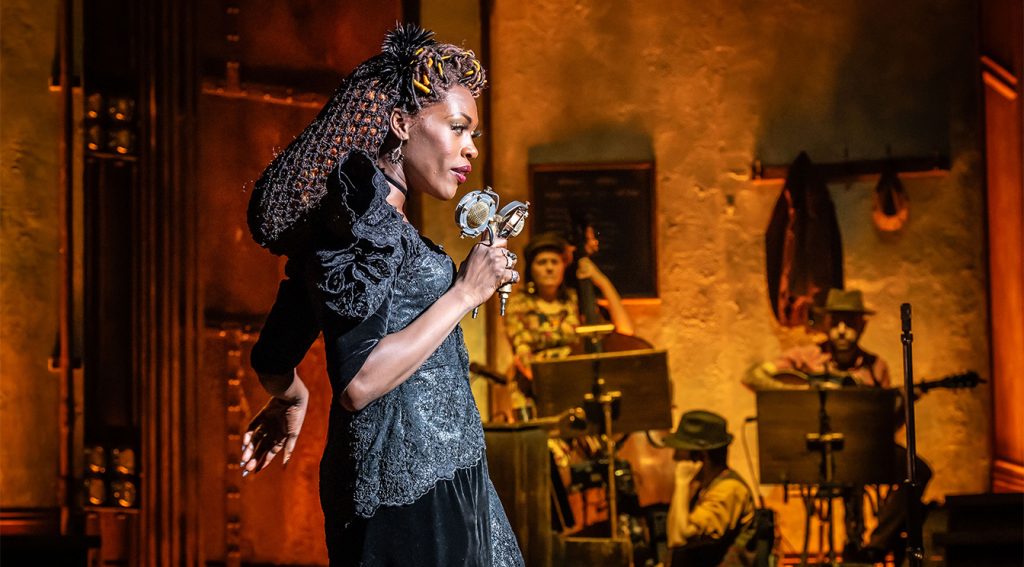
The show visited the National Theatre back in 2018 and was then a Tony Award-winning hit in New York. This tweaked version has a British cast (with lots of accents), who give suitably divine performances. The young lovers, played Dónal Finn and Grace Hodgett Young, perfectly embody the show’s theme of hope. While as Persephone and Hades, Gloria Onitiri and Zachary James have superb voices and give performances full of nuance. Leading them all, as a kind of narrator warning us how sad and ancient the story is, Melanie La Barrie is a stunning Hermes.
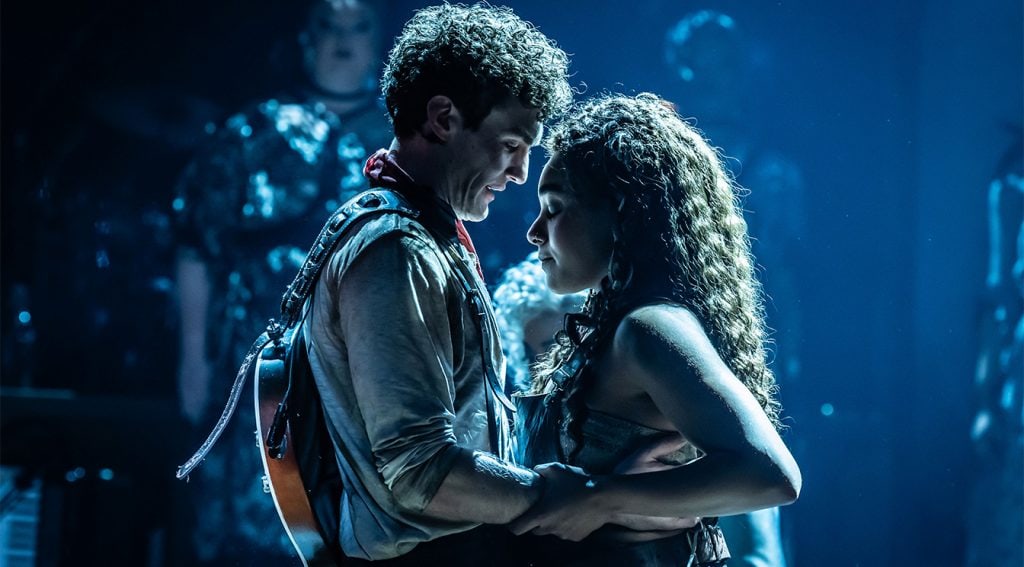
Adapting Greek myths is perennial. But Mitchell makes the attempt to rescue Eurydice from death so exciting that I suspected the end was going to be changed! There’s plenty of thought behind these versions of the characters. Finn’s Orpheus is gauche musician and Hodgett Young’s depiction of a damaged young woman are both moving. Persephone has taken to drink to deal with her overbearing husband, and Hades reimagined as a mine owner and industrialist is a very neat idea. Rachel Chavkin’s direction makes the most of all this background work, as well as creating a fantastic ensemble with starring roles for three commanding Fates (Bella Brown, Madeline Charlemagne and Allie Daniel).
Placing the action out of time and place is a smart enough move but sometimes snags: this is a generic dystopia, with climate concerns and income inequality. Alongside are touches of the 1930s and a setting that is clearly the American South. All mashed together, it’s a bit mind boggling. And if you made a case that Hadestown is politically naive, it would be hard to argue with that. This show wants to inspire, sometimes too much. But there’s nothing wrong with musical theatre focusing on a better world. There are rousing, goosebump moments and the sincerity has an earthy base. It’s the power of storytelling that electrifies the show – tales aided by song – and brilliantly so.
Rachel Hauck’s set does have surprises – that work well – and it’s easy to appreciate why Bradley King’s lighting earned him a gong. But for a lot of the show the action feels cramped, and David Neumann’s choreography somewhat wasted. The project’s origin as a concept album is clear. But, given the score, that isn’t a big problem.
Hadestown has exceptional music. The term folk opera is tempting (it reflects Mitchell’s roots), and there’s that sense of communal storytelling that is pivotal to the action: the act of re-enacting is the piece’s raison d’être. But let’s not sell the sources short – folk is mixed with just as much jazz, with touches of pop and rock that are hugely exciting. You never quite know what’s coming next. The show is sung throughout, and it’s clear, concise poetry, full of memorable rhymes and lines. It’s not just that each song is good, and works dramatically, but that they all work together and cohere marvellously. This story may be old, but I hope it goes on and on.
Until December 2024
Photos by Marc Brenner

